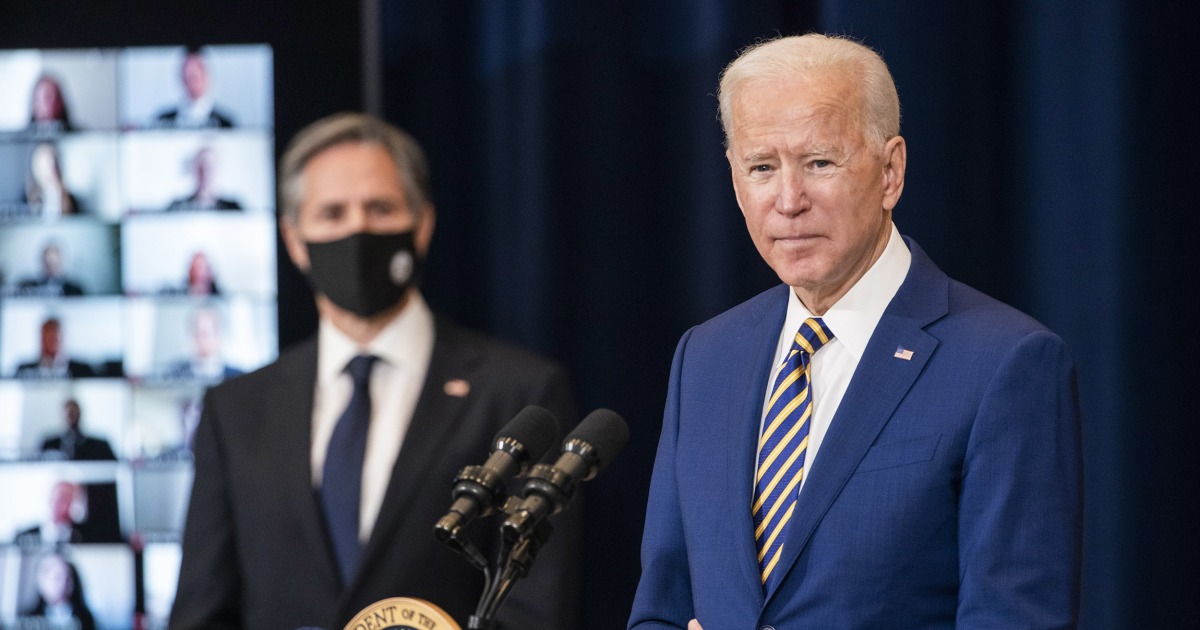As a candidate, Joe Biden labeled Saudi Arabia a “pariah” state that should be punished for the murder of journalist Jamal Khashoggi and the death of civilians in air strikes in Yemen.
“They are murdering innocent people and should be held responsible,” he said in November 2019. “There is very little social value for redemption in the current Saudi Arabian government.”
Now, the White House is giving a diplomatic hug to the man who leads this government: Mohammed bin Salman, the Saudi crown prince best known in the world as MBS.
White House press secretary Jen Psaki said on Tuesday that when Biden makes his first official call to Saudi Arabia as president, it will be for King Salman, 85 – and not for his 35-year-old son who rules the country day to day.
“We made it clear from the beginning that we are going to recalibrate our relationship with Saudi Arabia,” she said.
This does not mean that the United States is severing ties with the kingdom, which officials acknowledge remains a key nation in the Middle East. Even the Crown Prince himself is not being completely frozen: he is officially the Minister of Defense of Saudi Arabia and received a call from Defense Secretary Lloyd Austin.
But Psaki’s words were a sign that Crown Prince Mohammed is being kept at bay by the White House. Gone is the wide-ranging presidential access he had under former President Donald Trump, when he was hosted in the Oval Office and treated like a visiting head of state.
The move may not come as a surprise, given that Biden accused the Crown Prince of personally ordering the assassination of Khashoggi – an assessment shared by the CIA but strongly denied by Saudi Arabia.
However, this sparked a heated debate: is it sustainable for the United States to maintain ties with the Saudi government while leaving aside the de facto leader of the kingdom?
Download the NBC News app for breaking news and politics
Bruce Riedel, a former CIA officer who served in the Middle East and is now a senior member of the Brookings Institution, says yes.
“I cannot speak for the government, but I think it is wise to send the message to Saudi Arabia that the White House will not deal with MBS because of its history of reckless violence against civilians,” he told NBC News.
Crown Prince Mohammed has been widely criticized for overseeing a massive crackdown on dissidents within the country and for continuing the war in neighboring Yemen, which is now the site of the world’s worst humanitarian crisis.
Riedel argued that the crown prince’s control of power in Saudi Arabia is not as firm as it appears, and that his diminished position in the White House could encourage palatial rivals seeking to oust him as heir to the throne. “Putting the kingdom’s alliance with the United States at risk will not be seen as an asset.”
Ali Shihabi, a commentator close to the Saudi government, said there was no chance that the Crown Prince would be expelled and that the White House had no choice but to engage with him.
“There is a great theatrical element to please the base because they talked a lot during the campaign. But Biden knows as well as everyone around him that MBS is the country’s CEO, ”he said. “Ultimately, he makes all the decisions – the king has given him that power – and they have to deal with him.”
The reality may end somewhere in between. While Biden can avoid calling the Crown Prince of the White House, the Saudi king often represents his father at international summits like the G-20, which may force the president to interact with him.
King Salman’s age and fragile health – he spent 10 days in the hospital in the summer with an inflamed gall bladder – also mean that the White House’s justification for avoiding the Crown Prince under the official protocol may not last. The crown prince could soon be the king and, therefore, Biden’s formal counterpart.
The Embassy of Saudi Arabia in Washington did not respond to a request for comment on this story. A statement from the Saudi government on Friday acknowledged the call between the Crown Prince and Austin, but made no mention of the White House announcement.
Becca Wasser, a defense researcher at the Center for New American Security, said the White House’s departure from the Crown Prince was part of an “extremely late” redefinition of US-Saudi relations, which includes Biden’s decision to end support for Washington to the Saudis war in Yemen.
“These changes will not be welcomed in Riyadh and, as with any reboot, there will be growing pains,” she said. “But the end result is a recalibrated relationship that fits more into the interests and values of the U.S. and does away with the blank check provided to the Saudis by the Trump administration.”

